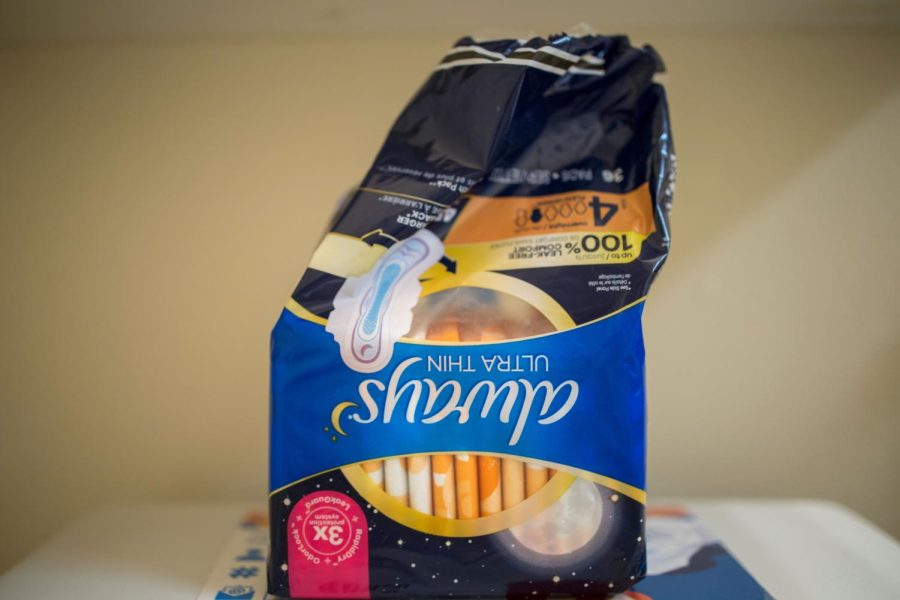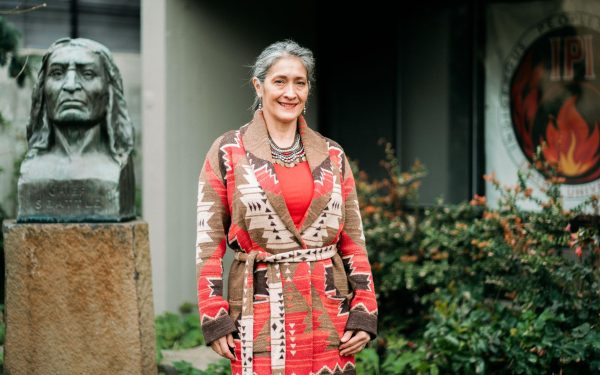Seattle U Organizations Combat Period Poverty
Opened package of Always ultra thin pads for night wear
190,080.
That is how many period products are anticipated to be saved over two years because of the recent CampusCup campaign at Seattle University run by AllMatters, a Danish company focused on reducing period waste on college campuses. AllMatters works to eliminate period poverty by creating more affordable and sustainable period product options. CampusCup is a program that allows schools to provide their students with free menstrual cups over the course of two weeks.
CampusCup’s goal is to provide equitable and accessible period care to all who menstruate while simultaneously reducing the environmental impact of disposable period products. The average person with a uterus will spend thousands of dollars on period products in their lifetime. For many, this cost can create a difficult choice between menstruation products or other necessities like food, electricity and working water, resulting in the growing period poverty crisis.
Period products like pads and tampons also produce a significant amount of waste. The average individual produces 400 pounds of period product waste in their lifetime, not including the environmental impact of burning used period products in landfills.
CampusCup works to help reduce the social and environmental effects of periods. It is an easily accessible and affordable product for those on college campuses who have lower income, and if used correctly, the menstrual cup will last two years.
Yolanda Cieters, the manager of sustainability at the Center for Environmental Justice and Sustainability, spearheaded the campaign. She expressed that CampusCup was an easy choice to bring to campus, as it simultaneously reduces waste and provides students with a more financially accessible option for period products.
“Hopefully, the CampusCup can turn into a long-term program where we can offer free cups besides the free menstrual products that are already available on campus,” Cieters said.
Cieters also acknowledged that the campaign would not have been possible without the participation of a variety of departments and clubs on campus. PERIOD, the Outreach Center, the Center for Student Involvement, the Office of Multicultural Affairs, members of campus facility services and Wellness and Health Promotion were all instrumental in providing 360 students menstrual cups.
Chris Fiorello, director of the Health and Wellness Center, was eager to get his center and its affiliated club involved when Cieters told them about the project. He explained that the Health and Wellness Center wants to provide students with the most helpful and accurate information they can on menstruation.
“Menstruation is a topic that’s often not talked about,” Fiorello said. “I think we need to destigmatize those topics.”
Madison Powell, a second-year biology major and member of the Health and Wellness Center, echoed Fiorello’s claim. She emphasized CampusCup’s positive influence on environmental and social impacts.
“It’s important to get the word out for anyone who menstruates, and it’s a really good resource,” she said.
Although CampusCup is no longer providing free menstrual cups, they are offering a 20% off discount code for all Seattle U students, faculty, staff and alumni.
However, the CampusCup campaign is not the only way that students on campus can get involved. The Seattle U Circle K International club (SUCKI) has started a period drive to collect period products to donate to either a local women’s shelter or to the school to help provide free period products for students on campus.
Kerilyn Higashi, the bulletin editor of SUCKI, explained that when their umbrella club, West Seattle Kiwanis, offered to match the total number of period products collected, Higashi realized it would be a perfect project for her service-based club.
“It shouldn’t have to be something that people have to pay the rest of their paycheck for, because it’s something that we just need in our everyday lives,” Higashi said.
Circle K International’s period drive will be occurring every Monday during CKI’s weekly meetings until Nov. 1. All products can be dropped off at Chardin 145 from 6-7 p.m.
With many events on campus attempting to relieve period poverty, everyone can get involved regardless of their level of commitment. Ordering a menstrual cup or donating a few menstrual products is an easy way to get involved and to help impact the Seattle U community.










